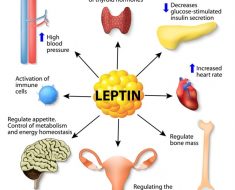
Training prisoners with diabetes how to manage their disease could prevent hospitalizations and diabetes-related medical crises after they are released, a team of researchers from UConn and the Connecticut Department of Corrections reported last month at the 79th annual scientific meeting of the American Diabetes Association.
Prisoners in the U.S. are 50% more likely to have diabetes than the general population, and are at much higher risk of diabetes-related complications when they rejoin society. Their life in prison doesn’t prepare them for self-care: in prison, they are generally told when and what to eat, when to sleep, and someone else tests their blood sugar and manages their insulin. The result is that close to half of people recently released from prison with diabetes could end up in the emergency room with a diabetes-related health issue within two weeks of getting out.
People with diabetes living in society generally learn how to manage their disease through discussions with their health care provider, diabetes educators, peers with diabetes, and personal research. UConn nursing professor Louise Reagan, Ph.D. student Rick Laguerre, and Colleen Gallagher, program director of quality improvement health and addiction services at the Department of Corrections believed a pre-release educational program could play the same role for people with diabetes living in prison.
The researchers ran a six-week training program on diabetes survival skills for a group of 92 prisoners who were preparing for release to the community in approximately six to nine months. They used a questionnaire to track the participants’ knowledge of diabetes survival skills, diabetes-related distress, personal motivation, and confidence in caring for their diabetes before, during, and after the training, and also had a control group fill out the questionnaire who did not participate in the training.
The program was a small pilot study, and of the 92 inmates participated, the researchers lost touch with about half before the end of the study. However, the results were promising. The researchers found it was feasible to teach diabetes survival skills, such as treatment of low blood sugar and insulin self-administration. And there were increases in diabetes knowledge and decreases in diabetes-related distress.
Intriguingly, the control group of inmates who did not get the training also had better post-program diabetes knowledge on the follow-up questionnaires. The researchers suspect the participants in the control group socialized with each other after completing each round of the questionnaires, potentially learning from each other over the course of the study. This may have influenced the study findings. But it was also clear that the trends in the experimental group were stronger and lasted longer.
Feedback from the prisoners themselves was also positive.
“They enjoyed the program and gave us ideas for improvement,” such as to make educational videos on how to self-administer insulin, says Reagan.
Source: Read Full Article





